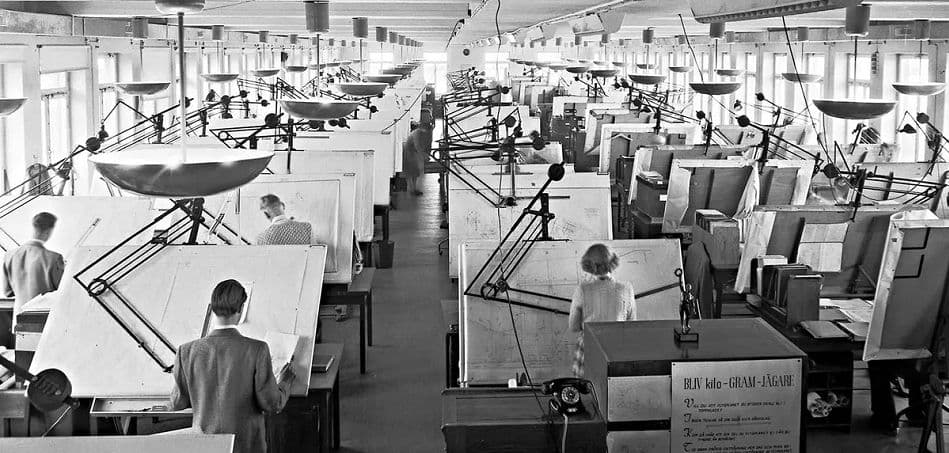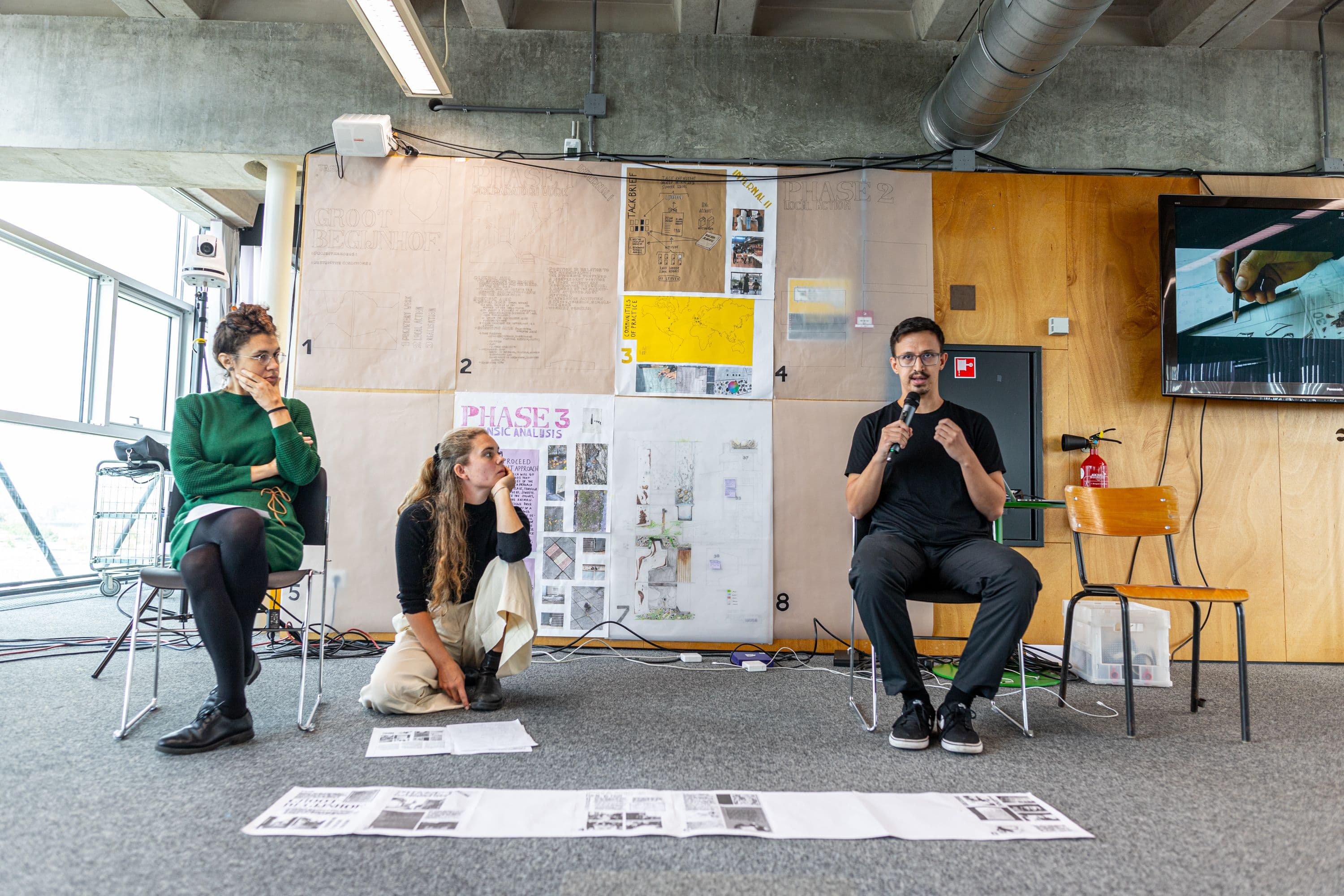TACK x Jaap Bakema Study Centre
During the 20th century, some of the most interesting experiments in architectural education developed outside traditional institutions, within collaborative international summer schools. In 2021, "Re-enacting Tacit Knowledge: 20th Century Architecture Summer Schools" will use these germinal summer schools to launch a pedagogical experiment of our own, drawing on the archival holdings and expertise of Het Nieuwe Instituut and the Jaap Bakema Study Centre. Exploring methods of performance and re-enactment -- and their entanglement with queer and feminist theory -- participants will reflect on the role that tacit knowledge played in summer schools, and in architectural education more broadly.
Re-enacting Tacit Knowledge is organised by the TACK PhD researcher from ETH Zurich, Hamish Lonergan, in collaboration with Dirk van den Heuvel (TU Delft and the Jaap Bakema Study Centre), Tom Avermaete (ETH Zurich) and Janina Gosseye (TU Delft). Lonergan will document the preparation for this summer school here on the Jaap Bakema Study Centre website. At the conclusion of the summer school, the work produced by participants -- including archival findings, re-enactment and seminar recordings, video diaries, drawings and fictocritical reflections -- will be collected as part of a virtual exhibition.
Summer Schools
International summer schools played an important role in bringing together students and teachers from different architectural schools, albeit predominantly Western ones. Examples such as the CIAM summer school (1949-1956), Sommerakademie Salzburg (1953), and the International Laboratory of Architecture and Urbanism (ILA&UD, 1976) represent rare sites of direct interaction and encounter, revealing the often-unconscious tacit knowledge at play in various educational systems. Precisely because of these encounters, summer schools developed a repertoire of formal (seminars, studios, walking tours) and informal (meals, conversations) pedagogical tools to bridge between "communities of tacit knowledge", promoting cooperation and mutual intelligibility.
Tacit Knowledge
Re-enacting Tacit Knowledge frames these summer schools as particularly fruitful sites to reveal the tacit knowledge of different 'communities of tacit knowledge' - a moment where the tacit comes to the surface. They were often richly documented in annual publications, dedicated archives, and the archives of individual participants, including significant holdings at Het Nieuwe Instituut related to CIAM and educators such as the Smithsons, Bakema and van Eyck. The ILA&UD Annual Reports, for instance, carefully delineated the contributions of participants, divided into accounts of the 'permanent activities' completed by each school in advance, the seminars delivered by distinguished practitioners, and the design tasks completed in groups, deliberately mixing and recombining participants from various schools. Yet, even in the best archives, there are inevitably gaps in our understanding. These explicit documents - texts, drawings, models, photographs, schedules, and so on - can tell us little of the social, embodied and often-unconscious workings of tacit knowledge, and the precise mechanisms of its transfer. Indeed, one of the paradoxes of tacit knowledge is that anything written or otherwise recorded is unlikely to be tacit at all.
Re-Enactment and Performance
Re-enacting Tacit Knowledge activates the archive through re-enactment and performance, allowing direct observation of tacit knowledge in operation. We will develop and follow a programme of seminars, lectures, walking tours and site visits, simulating similar programmes at prominent summer schools. We will conduct a close reading of explicit archival documents and materials, forming the basis for design projects and activities performed 'in character' as the various designers and schools of those historical summer schools themselves. At the same time, we are interested in unpacking the potential of these approaches in architectural education in other cases. Emerging from feminist and queer theory, re-enactment and performance help renegotiate traditional hierarchies, acknowledging the way that all identities and roles are 'performed' in pedagogy: from teachers to students, from the master architect to the first-year undergrad. Through queer and feminist theories, we will reflect on the power dynamics that remain substantially tacit in 20th century summer schools, including issues of representation and authority.
Format
- Re-enacting Tacit Knowledge is deliberately framed as a non-hierarchical, collaborative and experimental environment. Across three phases, participants and organisers alike will work together towards a group re-enactment and performance.
- Phase 1 will lay the groundwork for the re-enactment. It will involve seminars lead by expert guests on theories of tacit knowledge, the history of summer schools, methodologies of re-enactment performance and fictocriticism. At the same time, participants will contribute to internal workshops and discussions, and conduct archival research in the collection of Het Nieuwe Instituut.
- Phase 2 will focus on the re-enactment itself. Working in small groups, participants will follow a programme of site visits, seminars and studio work, documenting their progress through video-diaries. This will culminate in a public presentation and performance of their projects, completed 'in character' as prominent architecture schools and designers from historical summer schools.
- Phase 3 will involve a final day of focused collective reflection on the re-enactment and what it reveals about tacit knowledge.
Expertise
Participants will collaborate with, and draw on the expertise of, the entire TACK network, including the innovative archival programme at Het Nieuwe Instituut. TACK academic partners Angelika Schnell and Eva Sommeregger (Academy of Fine Arts, Vienna) will present similar re-enactments that they conducted on Bauhaus pedagogy with their students. Dirk van den Heuvel will discuss Jaap Bakema's frequent involvement in international summer schools. Tom Avermaete will consider the work of CIAM, including the CIAM summer school, from the perspective of his scholarship on postcolonialism.
Re-enacting Tacit Knowledge also engages with a number of experts outside the TACK network. Hélène Frichot (University of Melbourne) will discuss her ongoing work on fictocriticism and feminist theory at the intersection of architecture and philosophy. Elke Couchez (Hasselt University) will present her current research on the ILA&UD, while Paolo Ceccarelli (ILA&UD) will speak about his experience working with Giancarlo de Carlo at ILA&UD and, more recently, as its president. Claudia Slanar (Belvedere 21) will lead participants in a workshop on performance and re-enactment, drawing on her research on re-enactments in art practice and film. Albena Yaneva (University of Manchester) will present a public lecture on her recent book on the craft, practice and tacit knowledge of archiving architecture.

